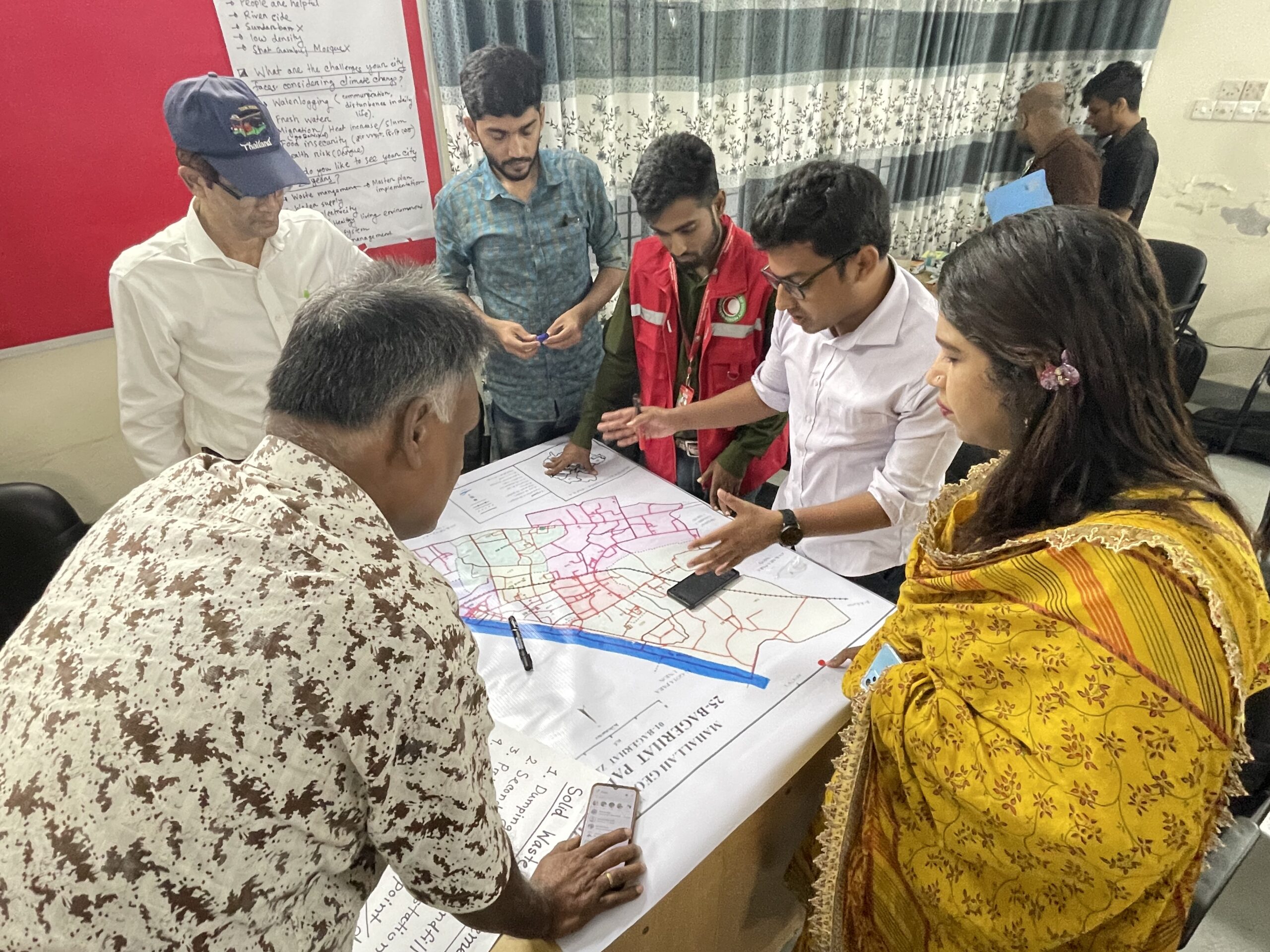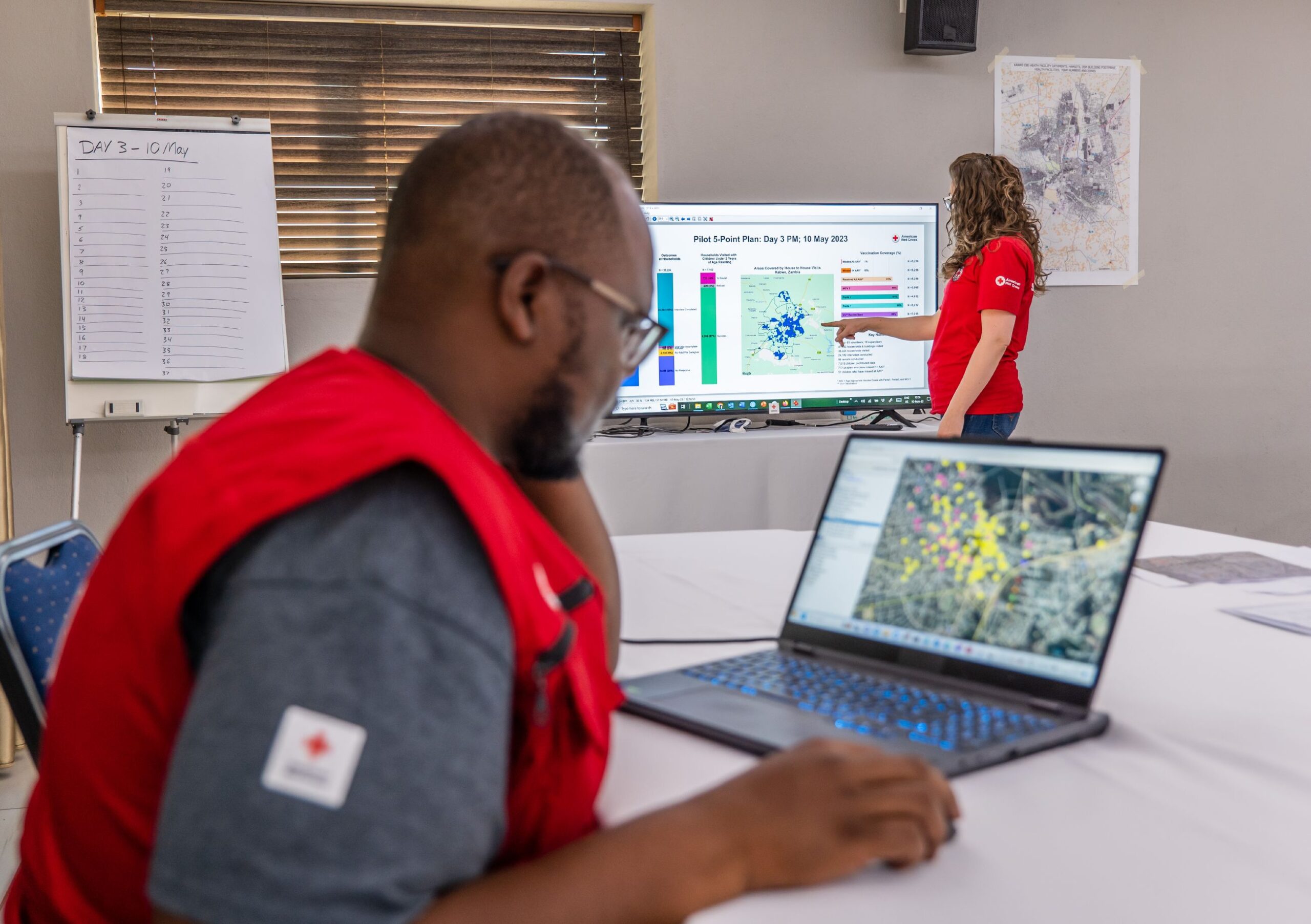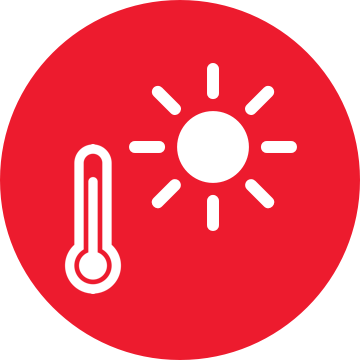ISD Climate Initiative: Urban Resilience
Building Climate Resilience of at risk communities in Cities
Through the Climate Initiative, ISD (International Services Department) helps National Societies, local actors, and at-risk communities in cities plan for and mitigate the impacts of climate change on the most vulnerable.
Rationale
By 2050, two thirds of the world’s population will be living in cities and towns, with over 95% of this growth occurring in the less developed parts of East Asia, South Asia, and Africa. Currently, in the Latin America and Caribbean (LAC) region, over 80% of the population lives in cities and towns. Rapid and unplanned urban development is happening concurrently with other global crises. Many of the world’s cities lack adequate infrastructure and resilient systems to withstand the impacts of multiple hazards and disaster risks, particularly the impacts from extreme heat (e.g., heatwaves) and coastal threats (e.g., coastal storms).
As a result, the vulnerabilities of underserved urban communities are becoming more complex and intersecting with environmental, societal, and economic change. For this reason, American Red Cross Climate Initiative aims to support and engage urban communities, assisting and empowering the most vulnerable to advocate for and create climate resilient cities.
Urban work

Coastal City Resilience and Extreme Heat Action Project (CoCHAP)
Urban Resilience Grants


Extreme Heat Grants
Urban Resources
Urban Resilience Toolkit
The urban community resilience toolkit includes three connected and complementary tools to help urban communities identify risk, their resilience priorities and design sustainable and scalable solutions together with a diverse set of partners:
- City-wide Resilience Assessment
- Building Coalitions for Urban Resilience
- Designing Solutions for Urban Community Resilience
You can find case studies, videos, and other learning documents about the process of coalition-building for urban resilience under the CoCHAP Project (discussed above) and also here.
HEAT Toolkit
This toolkit is a compendium of resources developed by the Red Cross Red Crescent Network to help communities identify, prepare for and respond to extreme heat events. It includes research, heat campaign materials, policy briefs, case studies and key tools developed by a wide range of stakeholders including the Global Heat Health Information Network (GHHIN) and the Red Cross Red Crescent.
Urban Collaboration Platform
The International Federation of Red Cross Red Crescent (IFRC) Secretariat and the American Red Cross have been leading an Urban Collaboration Platform (UCP) since early 2016, with strong support from increasing number of National Societies, the Global Disaster Preparedness Center and the Red Cross Red Crescent Climate Centre. The UCP aims to help Red Cross Red Crescent National Societies become better informed, better connected and better engaged in understanding and working in urban contexts. Helping urban communities become more resilient will make a significant contribution to the IFRC initiative One Billion Coalition (1BC).

